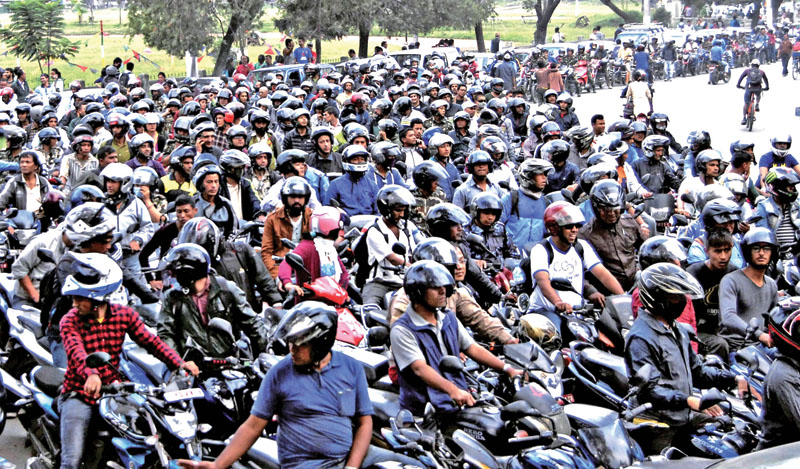LETTERS: Be self-reliant on fossil fuel
CPN-N UML Chairman KP Sharma Oli became the 38th Prime Minister of Nepal by defeating Nepali Congress President Sushil Koirala with a margin of 89 votes on October 11. He garnered 338 votes while Koirala polled 249 votes during the voting held after the promulgation of the new constitution on September 20. The newly elected premier is expected to put all his focus on the pressing fuel crisis that has hit hard the country. Smooth supply of petroleum products has always been a perennial problem which needs to be resolved on a permanent basis if the country is to become self-reliant. We must not rely on a single country for the import of petroleum products which are the driving force of our economy. The government must find other alternatives so that disruption of its supply from one country may not affect our daily life or national economy. On the other hand we must also explore the potential of fossil fuel within the country so as to meet the domestic demand. There are some locations, including the Kathmandu Valley, which have fossil fuel that may help reduce our dependency on other
countries.
Pratik Shrestha, Kathmandu
PhD peons
This has reference to the news story “2.3m Indians apply for 368 low-level government jobs” (THT, Sept. 19, Page 12).
Considering the quality of PhDs these days it is not surprising that 255 of them in the Indian state of UP bordering Nepal applied for the post of peons. It is an irony, for a country that produces world-class technocrats, geeks and bankers, such a large number of PhDs should be their dignity on this position. Perhaps they are followers of Mahatma Gandhi who believe in dignity of labour and have no qualms about serving tea and running errands for their less educated bosses.
Or, perhaps these PhDs bought their degrees in the open market, procured them through the blessing of their political benefactors or are simply crooked impersonators. For in cities like Delhi and Mumbai the standard and the quality of even high school and university graduates are world class. It is no wonder then that there was a time when our ubiquitous hotel and travel industry exclusively hired young Indian university graduates as senior and general managers. Locals, some with multiple master degrees or even a PhD or a foreign MBA, would be passed over for those positions. To their credit, the young expatriates, however, had far better exposure and were capable of intense presentation and PR. Some of them were smarter than the owners of the hotels, casinos and travel companies. All these make one wonder as to why PhDs would vie for posts of peons in a country that produces such highly competent workforce out of ordinary school and college graduates. That said, unlike in this country, government jobs are highly coveted as a secured means of livelihood and it is possible that these PhDs want to get one irrespective of rank or position.
J Talchabhadell, Bhaktapur






